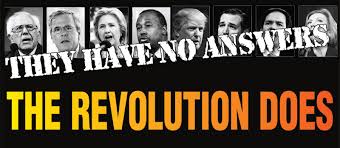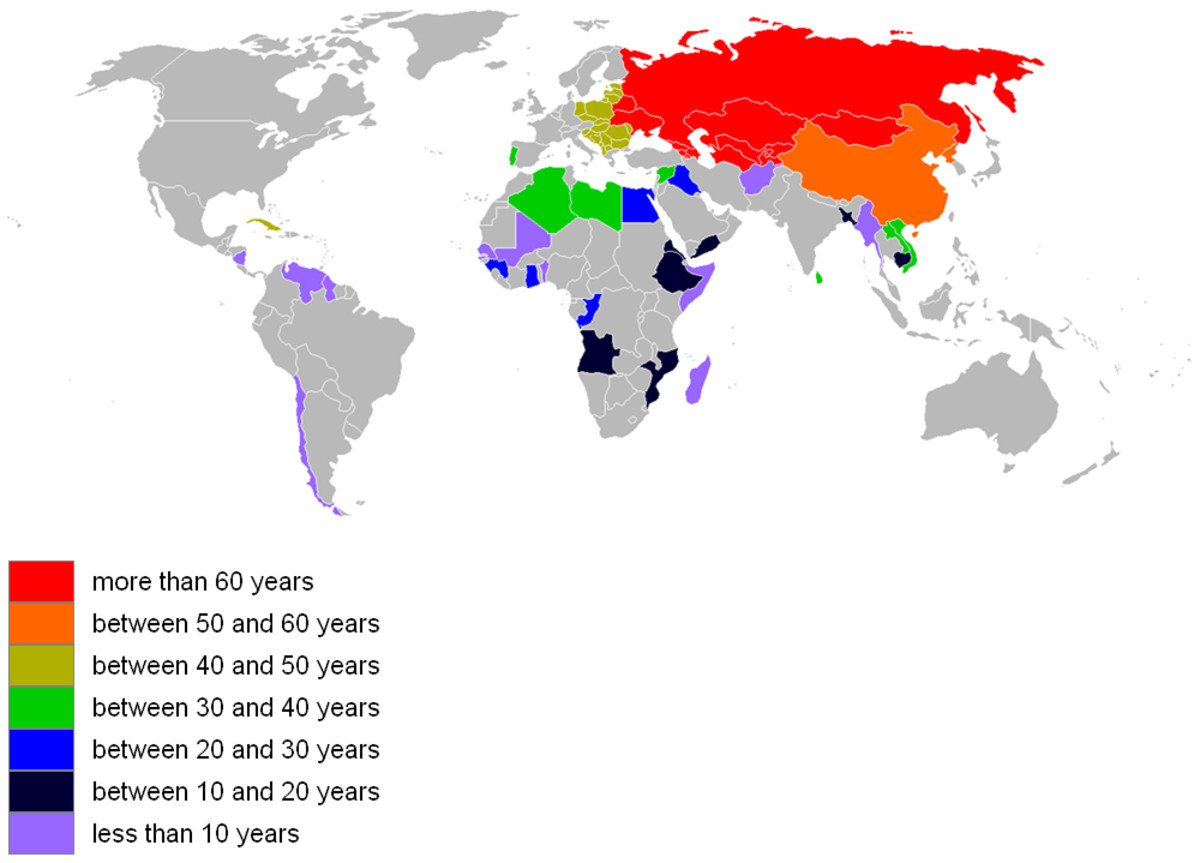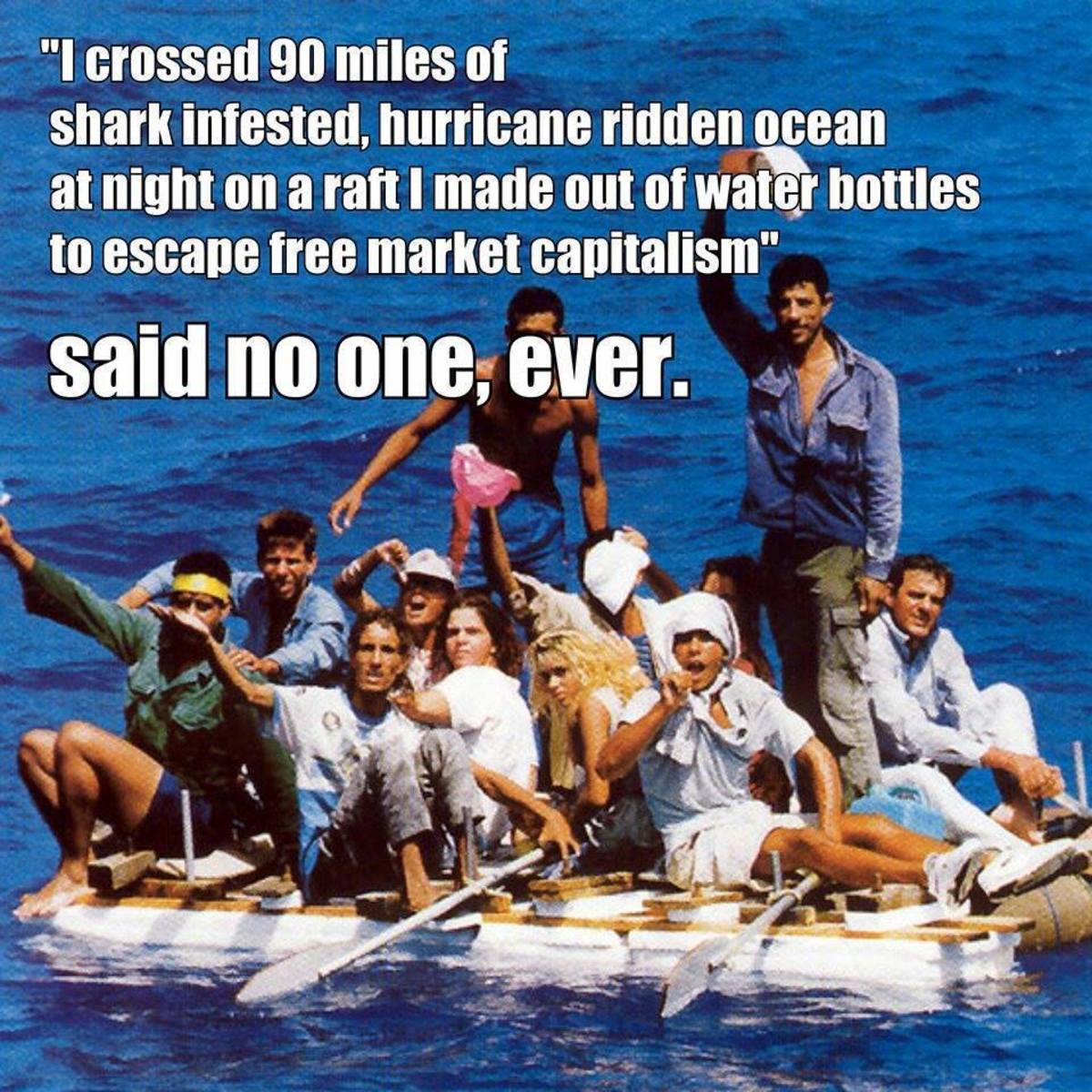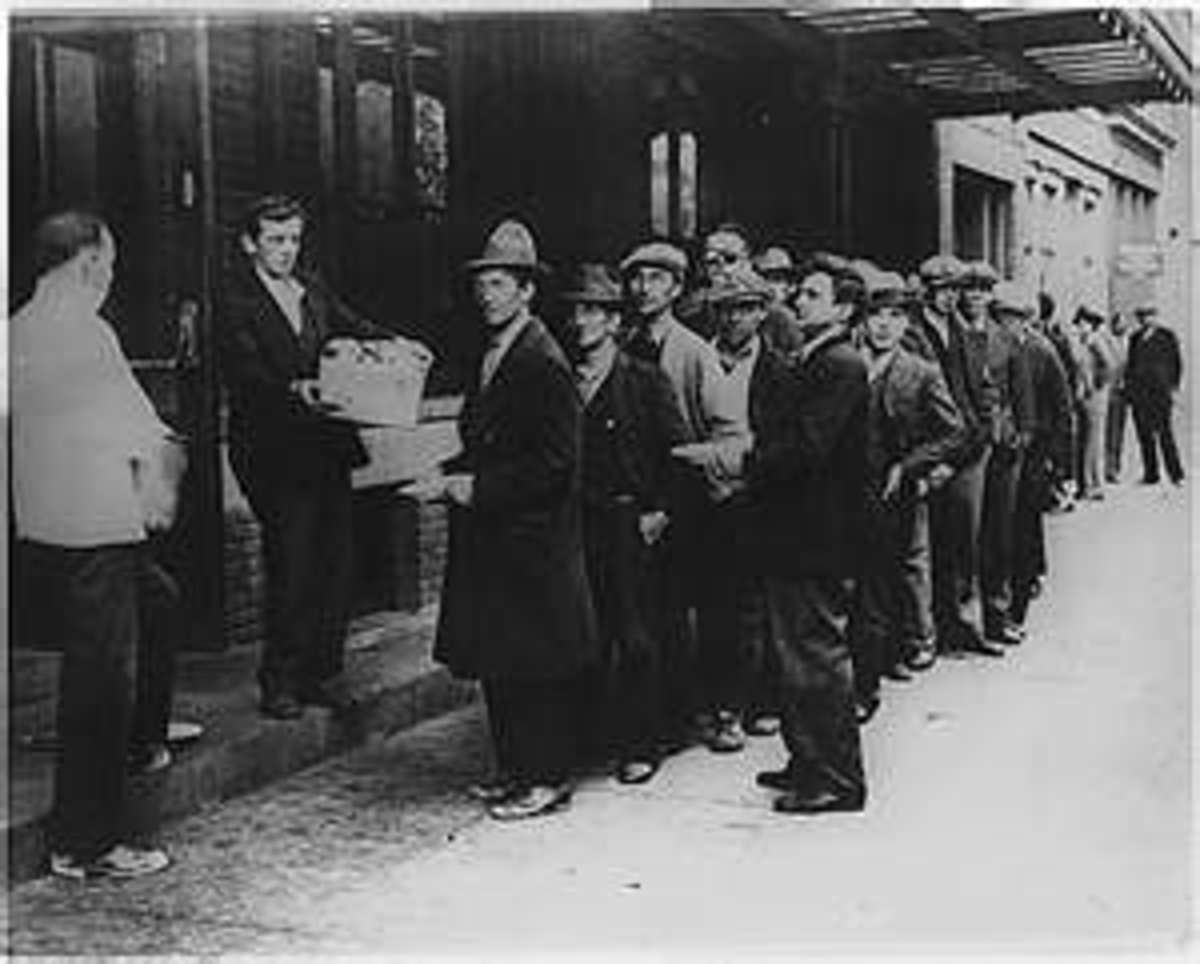It's Not Only Our Economy That Needs Fixing
Do the candidates really have the answers?

Let's go beyond Bernie Sander's definition of Socialism & Revolution
Candidates have an understanding that what most Americans want is a strong economy, among other things that make their individual or family life easier. That is why the word 'Socialism' is so popular among democrats. Let's be realistic about any candidate being socialist. Obama referred himself as a Socialist as well. A lot of people liked him and still do because he picked up the mess left behind by George W. Bush. But President Obama was/is still functioning under a capitalist system that demands he wages war and other corruptions despite all the "good" he has done under this system.
The same will go for the next candidate, even Bernie Sanders, who I believe is the best among the other candidates in comparison. Though people like to see the differences among candidates, which allows them to feel they are voting for the best one, the similarity among these candidates must be analyzed if we really do want a change in how this system runs. The only way to change it is to dismantle a state that runs for profit at the expense of people and the environment. And it takes more than just tackling corporations as Bernie Sanders wants to do. Corporations is just one of the tentacles of Capitalism.
Now getting back to the economy: the hot-topic among candidates. Let's briefly look at employment. If you think about it, in terms of government branches, which is A LOT, places in the U.S are FILLED with government vacancies. The good side is we have jobs right? Well, there are a lot of down sides to this as well, which I'm sure many readers already know, such as the threats usually experienced through these public spheres of not getting funded because the government always has the agenda of privatization such as what is already happening in public education becoming charter schools with the excuse of it being better quality, rather than increasing the quality in the already public institutions.
A high school teacher who was teaching about the Roman Empire put it this way: The government is almost exploding from all the people that they have to support (in other words). And seeing it this way made me understand a bit more of what is at stake. I was someone who was frustrated from not seeing her paycheck at times or having part of her check stored for future distribution to have half of it taken off for taxes. But then I understood why the government held so tightly to "my" money.
Some middle class who experience tax deductions might be hostile toward lower class citizens who get a check during tax season. Others understand that it is more complicated than blaming the lower class. The solution to poverty is not having the low-income be dependent on social programs- the solution is better quality services that they cannot afford, and so they are trapped in social programs. (Plus let's not forget that most of our taxes goes toward military and homeland security. http://www.globalissues.org/article/75/world-military-spending) And this is the difference between Capitalism and Socialism. Socialism is not about social programs but about giving all communities what they need regardless of class. But you cannot have Socialism under Capitalism. You can only have Socialism by making a Communist Revolution, in which people transition from Capitalism to Socialism.
The Socialist state will then be working on going all the way toward Communism, which means society is no longer ruled by classes and the social antagonistic relationships that are a result of that. And again, I recommend people to read, "The Constitution for a New Socialist Republic in North America." And I know I sound like a broken record by repeating this book, among other books I continue to mention. But I find it relevant because it is a vision of the new society after a revolution. And if people find themselves, not only being able to live in that society, but preferring it, then it will awaken readers into realizing they want a Communist Revolution. And that's a big deal. (Now, I understand people have a lot of wrong connotations of Communism, based on the history they read. And if this is a problem, people should really dig into thisiscommunism.org and the special issue based on the history of Communism through the Revolution Newspaper, which is found in Revolution books and in the website revcom.us)
To get back to understanding our economy, experiencing it does help at times to understand the issues of the economy, but it will not paint a vivid picture of real problems and solutions. The media might try to explain things, but it has many limitations because the people who own the media do not want to put certain "ideas" in people's heads. You can manage to be self-employed, which is more convenient, as Daniel Quinn writes about in "Beyond Civilization: Humanity's Next Great Adventure." But we still have to work with the money created by this system that is used to control us, which uses that money to plunder the people and the planet. Past presidents in each dollar represent all the corruption that has made the United States what it is today through the jobs they needed to get done during that era (and still being done now- think a black president solved the problem? Imagine Obama on the next bill and see how you think about that).
One of the sources that shows this reality is, "The Half has Never Been Told," by Edward E. Babtist who analyzes how slavery was used to increase capita during the founding of the U.S. And though it seems we are no longer living in those times, is important to trace how similar it is today and how slavery has evolved, especially in many low-income's public education where the culture is more of discipline than education (Discipline only treats the symptoms of behavior problems- but it doesn't get to the root cause, which is influenced by Capitalism where social antagonism arises) besides being targeted for police terror. And is not just the American workforce we should be analyzing, but the work force internationally (which happens as a result of our foreign relations) who suffer the blows much severely as Kevin Bale depicts in, "Disposable People: New Slavery in the Global Economy." Bales does an excellent job depicting the horrors of Slavery, and it really does arouse anger from these injustices. But his solution to work in the U.N is not something that I think will solve the problems of Slavery.
Bales does confront that there has been a lot of corruption and bureaucracy in the U.N, but finds that the good people have done shows you can use it for good rather than corruption. Well, even if this would be true (in terms of it doing good in and of itself), the point is that the U.N is not a good tool to changing Capitalism-Imperialism. And actually the U.N has no choice but to work along side Capitalism because it is the system that is ruling the planet (hence the reason the U.N does corrupt things in the first place, and hence the reason Capitalism is plundering the planet). The topic on slavery, which is how we get our products, is spoken much clearer by Bob Avakian in his new work, which I will mention shortly.
These harsh truths should challenge Americans to understand what it takes to get ourselves free from this system, beyond how we think it affects us as individuals, which is usually only seeing it in the aspect of the economy. I understand the reason people cannot see the bigger picture is because of how society trains us to think and feel. But a society under Capitalism will not depict things based on truth. They might influence a few intellectuals, artists and professionals to see the real problems, but they are limited into understanding the real solutions to all of it and even the problems more clearly themselves (such as how capitalism truly functions), which therefore makes them think of solutions short of revolution and only in trying to change the nature of Capitalism. And again I recommend BA's new work, "The Science, The Strategy, The Leadership, for an Actual Revolution and the A Radically New Society on the Road to Real Emancipation." This touches on that, as well as the topic of slavery in the global economy.
Capitalism branches out in many ways, which creates a lot of the global issues we see today, and makes us think solutions are simply tailored to serving communities here and overseas. Some might find the connection between the problems in other countries to the works of Capitalism-imperialism in Empires such as the U.S, but others don't. All these global issues are not separated as they want us to think, such as that this type of violence in this corner of the world is caused through a certain terrorist organization or through a president in that country- well yes, that's the partial reality, but what about how these terrorist and dictators got there in the first place? All these social issues is tied to the same imperialist capitalist system that is engulfing our planet. Even if we talk about different empires, those empires have Capitalist imperialism in common. And if you really want to look at the problem, it stems beyond economy. And if you really do want to change the problems that stem from that, you must dare to not want Capitalism, b/c that's the problem.








